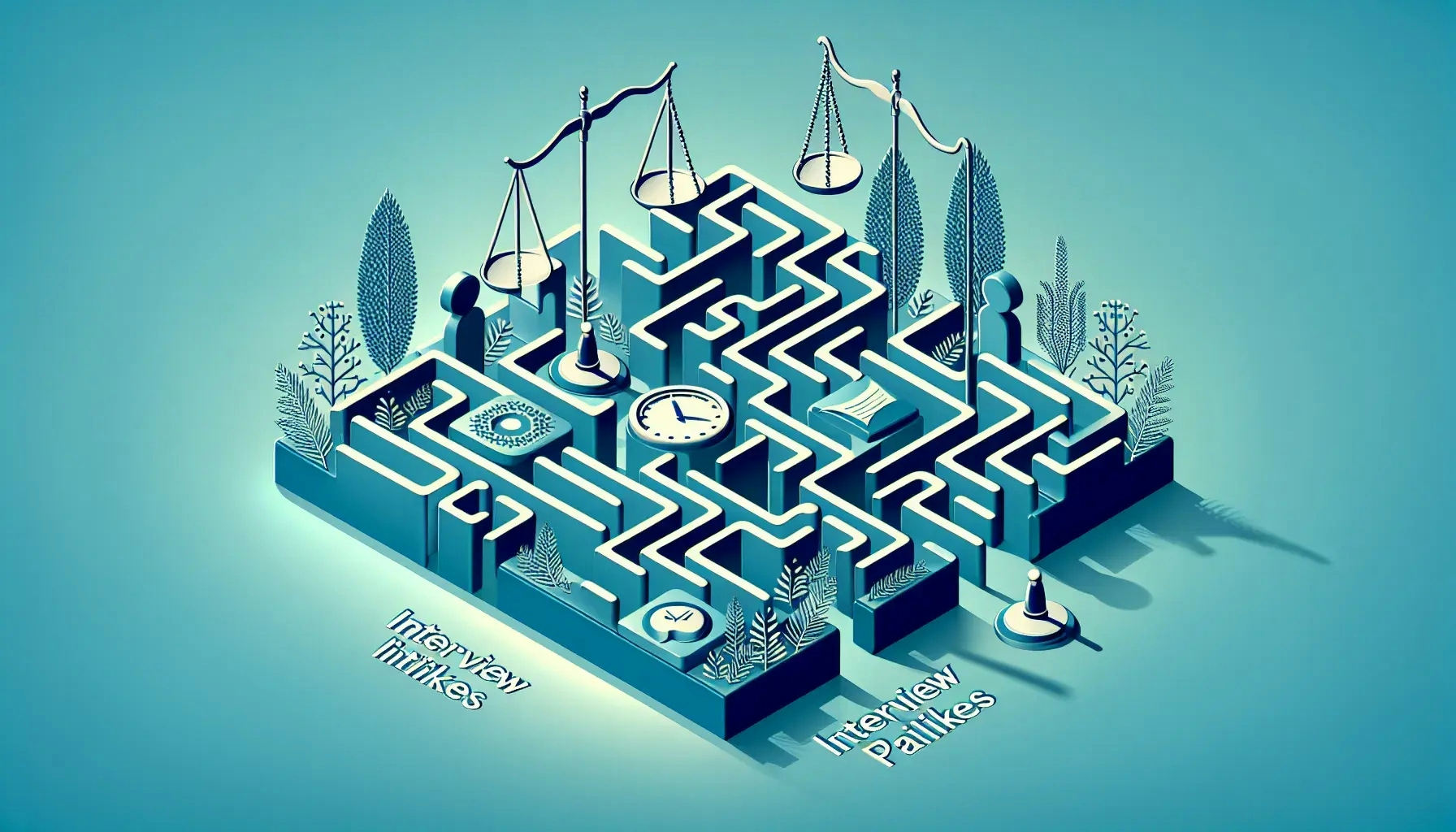Interviews can be a daunting experience, even for the most seasoned professionals. The pressure to perform well, coupled with the uncertainty of what questions may arise, often leads to common mistakes. This blog post aims to shed light on these common interview pitfalls and provide guidance on how to avoid them. We'll delve into the nuances of interview etiquette, preparation, communication, and follow-up, all with the goal of helping you ace your next interview.
The Importance of First Impressions
The adage, "You never get a second chance to make a first impression," holds true in job interviews. The first few minutes of your interaction can set the tone for the entire interview. Arriving late, dressing inappropriately, or failing to greet your interviewer properly can all lead to a negative first impression.
To avoid these pitfalls, plan your route to the interview location in advance, ensuring you allow for any potential delays. Dress appropriately for the industry and company culture. A firm handshake, eye contact, and a warm greeting can go a long way in establishing a positive rapport.
Remember, your body language also communicates volumes about your confidence and professionalism. Maintain good posture, avoid fidgeting, and engage with your interviewer through positive, non-verbal cues.
The Art of Preparation
Preparation is key to avoiding common interview pitfalls. A lack of preparation can lead to stumbling over answers, failing to ask insightful questions, or appearing disinterested in the role or company.
Start by thoroughly researching the company, understanding its mission, values, and culture. Familiarize yourself with the job description and align your skills and experiences with the requirements of the role.
Practice common interview questions and prepare your responses. This doesn't mean memorizing answers word-for-word, but rather having a clear idea of the points you want to convey.
Prepare questions to ask your interviewer. This not only shows your interest in the role but also provides valuable insights into whether the company is a good fit for you.
Effective Communication: More Than Just Words
Communication in an interview is not just about the words you say, but also how you say them. Speaking too quickly, failing to listen, or providing overly long answers can all detract from your message.
To avoid these pitfalls, practice active listening. This involves fully focusing on the speaker, understanding their message, responding thoughtfully, and asking clarifying questions if necessary.
When responding to questions, keep your answers concise and relevant. Avoid going off on tangents or overloading your answers with unnecessary information.
Remember, your tone of voice and body language also play a crucial role in communication. Maintain a positive and enthusiastic tone, and use your body language to reinforce your words.
The Perils of Overconfidence
Confidence is key in an interview, but overconfidence can be detrimental. Overconfidence can lead to a lack of preparation, dismissive behavior, or failing to listen effectively.
To avoid these pitfalls, approach your interview with a balance of confidence and humility. Recognize your strengths, but also be open to learning and improvement.
Remember, the interview is not just about proving your worth, but also about finding a good fit between you and the company. Show genuine interest in the company and the role, and be open to feedback and suggestions.
The Follow-Up: An Often Overlooked Step
The interview process doesn't end when you walk out of the interview room. The follow-up is a crucial step that many candidates overlook. Failing to follow up, or doing so inappropriately, can leave a negative impression.
To avoid these pitfalls, send a thank you note to your interviewer within 24 hours of the interview. This not only shows your appreciation for their time but also reaffirms your interest in the role.
Keep your message professional and concise, and use it as an opportunity to reiterate your enthusiasm for the role and the value you can bring to the company.
Remember, patience is key in the follow-up process. While it's important to show your interest, avoid pestering the company with frequent follow-ups.
The Power of Self-Reflection
Self-reflection is a powerful tool in avoiding common interview pitfalls. Reflecting on your past interviews can provide valuable insights into areas for improvement.
After each interview, take the time to reflect on what went well and what didn't. Consider the feedback you received, and think about how you can improve in future interviews.
Remember, each interview is a learning experience. Even if you don't get the job, you can still gain valuable insights and skills that can help you in your future interviews.
Conquering the Interview: A Recap
Interviews can be a challenging process, fraught with potential pitfalls. However, with the right preparation, effective communication, a balanced level of confidence, appropriate follow-up, and self-reflection, you can navigate this process successfully. Remember, each interview is a learning opportunity, and every mistake is a chance for growth. By avoiding these common interview pitfalls, you can present your best self and increase your chances of landing your dream job.

